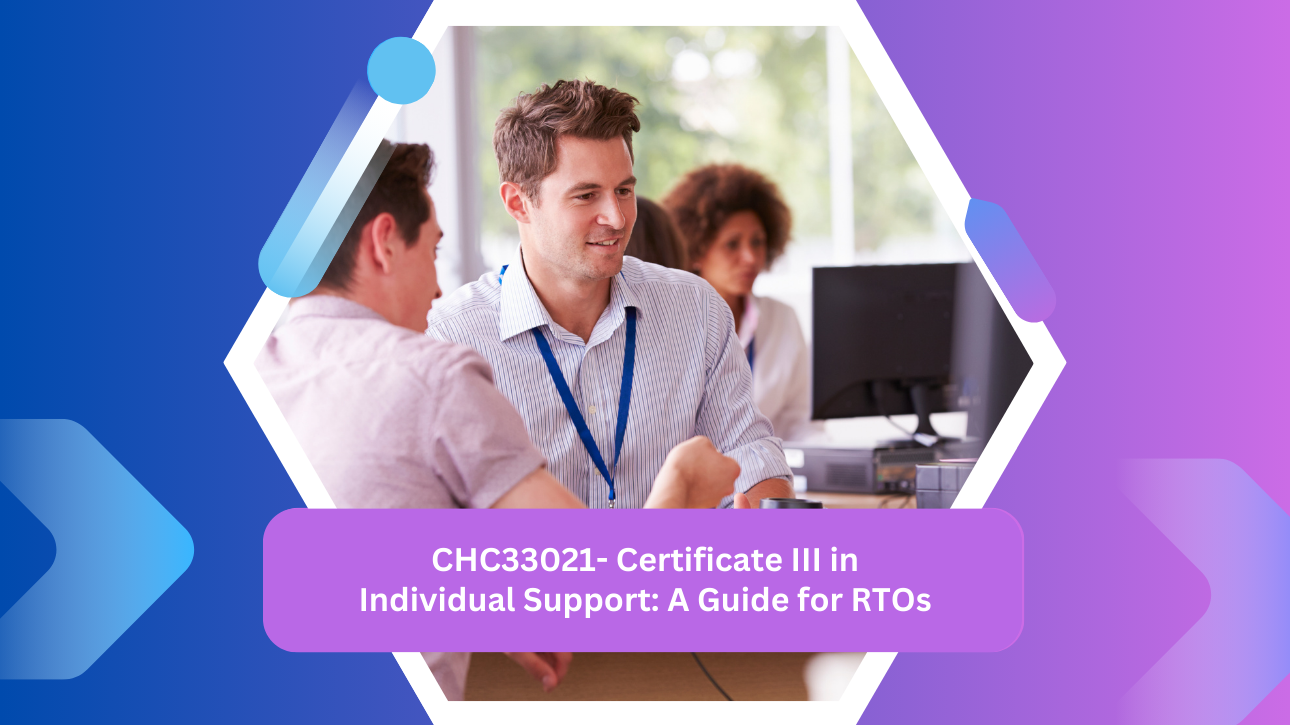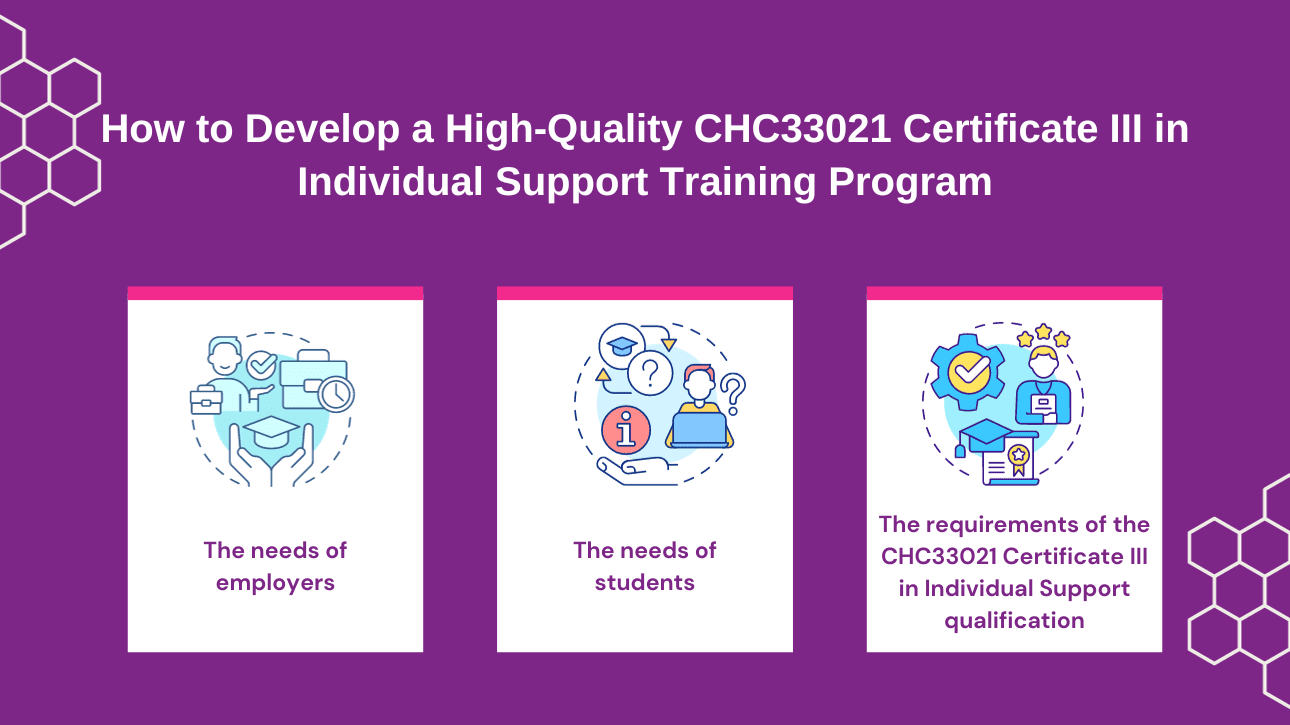Home » CHC33021- Certificate III in Individual Support: A Guide for RTOs

The CHC33021 Certificate III in Individual Support is a nationally recognised qualification that prepares students for a career in the individual support sector. This sector covers a wide range of services, including aged care, disability support, and mental health support.
Employers in the individual support sector are constantly looking for qualified workers, and students who complete the CHC33021 Certificate III in Individual Support are in high demand. According to the Australian Department of Social Services (DSS), the NDIS workforce will need to grow by 40%. That means more jobs for the CHC33021 graduates.
So if you are an RTO, offering the CHC33021 Certificate III in Individual Support can be a great way to meet the needs of employers and students alike.
In this blog post, we will provide a comprehensive guide for RTOs on how to develop, deliver, and promote a high-quality CHC33021 Certificate III in Individual Support training program.

When developing a CHC33021 Certificate III in Individual Support training program, it is important to consider the following factors:
According to vic.gov.au viv.gov.au, employers look for reliable, dependable employees. They look for people with good interpersonal skills. They should have good problem-solving skills and a good team player. So make sure you develop these skills through your training in your students.
Through your expert analysis find out what is the best way to teach your students. They can be a good mix of all the learning styles out there or just one. So, find it out through quizzes, consultations and other ways suitable.
Once you have considered these factors, you can start to develop your training program. It is important to ensure that your training program is aligned with the requirements of the CHC33021 Certificate III in Individual Support qualification and that it provides students with the skills and knowledge they need to be successful in the workplace.

To attract and retain students for your CHC33021 Certificate III in Individual Support training program, it is important to:
Here are some tips on how to promote your CHC33021 Certificate III in Individual Support training program to potential students and employers:
The CHC33021 Certificate III in Individual Support is an important qualification for RTOs to offer. It provides students with the skills and knowledge they need to work in the individual support sector, which is a growing sector with a high demand for qualified workers. By following the tips in this blog post, RTOs can develop and deliver high-quality CHC33021 Certificate III in Individual Support training programs that meet the needs of employers and students alike.
Q.1. Where can we find the complete information on the CHC training package?
A.1. The complete information on the CHC training package can be found on the Skills Impact website: https://training.gov.au/training/details/chc
Q.2. Where can RTOs find the highest quality RTO training materials for CHC33021?
A.2. VET Resources is the best provider for compliant learning resources of CHC33021.
Q.3. What are the career prospects of certificate III individual support?
Q.4. What employability skills does a disability support worker have?
A.4. Disability support workers have a range of employability skills, including:
Q.5. Where can RTOs find the best RPL assessment kits for CHC33021?
A.5. At VET Resources you can find the best RPL assessment kits for CHC33021.
Q.6. Who is the regulatory body for checking the compliance of CHC33021 RTO training materials?
A.6. The regulatory body for checking the compliance of CHC33021 RTO training materials is the Australian Skills Quality Authority (ASQA). ASQA is responsible for ensuring that all RTOs in Australia meet the required standards.
Disclaimer:
The information presented on the VET Resources blog is for general guidance only. While we strive for accuracy, we cannot guarantee the completeness or timeliness of the information. VET Resources is not responsible for any errors or omissions, or for the results obtained from the use of this information. Always consult a professional for advice tailored to your circumstances.
Ben Thakkar is a Compliance, Training, and Business specialist in the education industry. He has held senior management roles, including General Manager, with leading Registered Training Organisations (RTOs) and Universities. With over 15 years of experience, Ben brings extensive expertise across audits, funding contracts, VET Student Loans, CRICOS, and the Standards for RTOs 2025.
Ben Thakkar Linkedin
National Australia’s Day Sale is live! 70% OFF!, Valid Till 31st Jan!
By submitting this form, you agree to the VET Resources Privacy Policy.